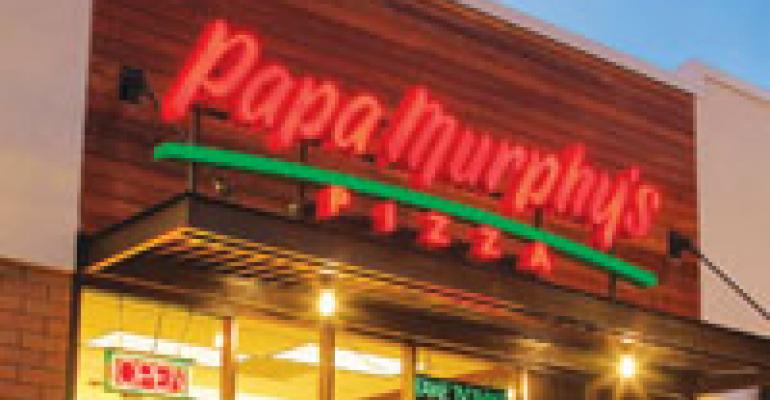When asked why Papa Murphy’s International is accelerating growth at a time when many restaurant chains are cutting back on development, franchisees within the take-and-bake pizza chain have a simple answer: The franchise model works.
Of course, it helps that sales at the take-and-bake pizza concept are going strong when others in the industry are reporting dismal numbers.
The Vancouver, Wash.-based chain reported positive same-store sales over the past five consecutive years—including an 8.5-percent increase in 2008. Systemwide sales last year reached $585 million, a 17-percent increase over the prior year, in part reflecting 102 new stores. And the trend appears to be continuing. For the first quarter in 2009, Papa Murphy’s reported same-store sales rose 2 percent over the prior year first quarter.
The chain has become the fifth-largest pizza brand and by far the largest within the take-and-bake niche, which includes Salem, Ore.-based Figaro’s Pizza, Columbus, Ohio-based Mama Mimi’s, and Nick-N-Willy’s in Denver.
Chain officials say Papa Murphy’s has hit a sweet spot as budget-conscious consumers are drawn to the brand’s bake-at-home convenience and lower price point, with a $15 check average.
Over the past five years, the almost all-franchised chain has opened some 100 stores per year, growing to 1,132 units within 32 states and two provinces in Canada.
This year, officials say the chain will add more than 100 units, moving into the states of Tennessee, Alabama and North Carolina. And while competitors in the pizza segment are trying to woo franchisees with discounts on royalties and fees, Papa Murphy’s is having no trouble recruiting new operators.
“It’s a good product at a reasonable price at a time when people really need that,” says Larry Hodge, president of the Papa Murphy’s Franchise Association and the system’s largest franchise operator with 65 units in six states. “It’s the strength of the concept.”
BONUS POINTS “[Papa Murphy’s offers] added value. They can give a really high-quality pizza at a lower price point because they don’t have the overhead of ovens and delivery [and other aspects that competitors must manage].”—Dave Ostrander, A consultant known as Big Dave, Oscoda, Mich.
Franchisees also attribute the chain’s successful growth to the supportive relationship the franchisor has with its restaurant operators, and that the brand has remained true to its core values of simplicity of operations, quality food and customer satisfaction.
Beyond that, however, franchisee Jon Willie says a key aspect is that unlike many franchisors Papa Murphy’s does not sell food to its franchisees—a practice among other brands that sometimes leaves franchisees feeling vulnerable and abused.
Willie, whose Portland, Ore.-based company Papa Jon’s Inc. operates eight units in Oregon and Alabama and has committed to another 15 over the next four years, says franchisees within the Papa Murphy’s system purchase collectively, but from an outside vendor.
Papa Murphy’s International “gets their royalties and fees, but they’re not taking it on both ends,” Willie says. “The bottom line is that our franchisor is not making money off the products we buy.”
Kevin King, Papa Murphy’s senior vice president of development, agrees that the practice has been beneficial. “I like it because it’s a simple message to prospects,” he says. “There’s an honesty there.”— [email protected]




